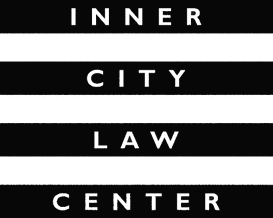Public Interest News Bulletin – March 16, 2012
By: Steve Grumm
Happy Friday, dear readers. Here in DC, presidential politics is all the buzz. Earlier this week erstwhile Pennsylvania senator and sweater-vest supermodel Rick Santorum achieved impressive primary wins in Alabama and Mississippi. Years ago a political guru famously quipped that Pennsylvania is Philly and Pittsburgh with a whole lot of Alabama in the middle. Maybe this explains Mr. Santorum’s ability to connect with Southern voters. Meanwhile Mitt Romney racks up delegates and the show goes on.
What else have we got? Here’s an interesting piece of Pew research about how Millennials could be impacted by growing up “wired,” with near-instant access to all kinds of information. I’m a Gen Xer, so while I’m vaguely inclined to write something about Millennials being impatient, I’m just too apathetic to get into it this morning. I’d rather listen to some Liz Phair and be sullen.
Here is the week’s news:
- LSC has a new chief lobbyist;
- PBI says low bono ain’t pro bono;
- NYC’s plan for changes in indigent defense case assignment gets a court’s okay, but still controversial w/in the bar;
- An AmeriCorps VISTA writes about his work on Statesidelegal.org, an online resource for vets with legal needs;
- the Maine governor’s budget proposal includes a boost for legal services funding;
- Washington State’s high court will weigh in on indigent defense caseload woes;
- a new chief defender nominated in the Ocean State;
- the growing docket of the “Amvets” legal clinic run out of Chapman Law School;
- federal courts are busier, but also prepping for less funding;
- legal services layoffs in Kentucky;
- also on Cape Cod;
- where does one go for a pair of jeans, lingerie, and a foreclosure defense?;
- the Legal Aid Society of Cleveland is staring at a $1.4million budget cut;
- show me a rise in pro se litigation;
- NY State sweetens the CLE pot for pro bono attorneys.
The summaries:
- 3.15.12 – from an LSC press release: “The Legal Services Corporation (LSC) announced today the appointment of Carol A. Bergman as Director of Government Relations and Public Affairs. Beginning on March 19, Ms. Bergman will oversee LSC’s relationships with Congress, the Government Accountability Office and other government agencies.” During her career Ms. Bergman has logged time on the Hill, in the White House, and in the nonprofit lobbying arena. I suspect she will call upon all of that experience when the thorny business of FY13 budget wrangling gets underway.
- 3.15.12 – Pro Bono Institute prez Esther Lardent on why so-called “low bono” – or reduced-fee – legal services should not count as pro bono. Lardent, while lauding the value of low bono as a way to deliver services to those who otherwise could not afford representation, writes: “Although [low bono services] are tools that help broaden access [to the justice system], they are primarily designed to broaden the market for legal services.”
- 3.15.12 – From Thomson Reuters: “New York City’s plan to shift tens of thousands of cases involving indigent defendants from private lawyers to the Legal Aid Society and other legal aid groups can go forward, a divided appeals court ruled Thursday. The disputed plan, which had been stayed pending the appeal, would only affect cases in which the initial legal aid group assigned to a case cannot provide representation due to a conflict. Five city bar associations had argued that the city’s proposal required their consent under the statute that governs the assignment of indigent defense cases, Article 18-B of the County Law. But in a 3-2 decision, the Appellate Division, First Department, said the plan was valid under 18-B and did not “improperly usurp the role of the County Bars.”
- 3.15.12 – writing in the Bangor Daily News, AmeriCorps VISTA member Peter MacArthur explains his work on a legal services project for vets: “I have worked as an AmeriCorps VISTA at Pine Tree Legal Assistance on its veteran and service member specific website www.statesidelegal.org since November…. With the vital help of many other individuals and organizations, Pine Tree Legal developed the Stateside Legal website as a clearinghouse of information on various legal needs, especially for low-income members of the military, veterans and their families. The website includes both original content on legal problems (such as foreclosure, divorce and service member Civil Relief Act issues) and links to quality legal content on other sites.”
- 3.14.12 – speaking of our country’s ruggedly beautiful northeastern corner, a budget proposal from Maine governor Paul LePage would boost state funding of legal services by $400K. (Story from the Morning Sentinel.)
- 3.13.12 – in Washington State, the high court will weigh in on whether justice demands the imposition of public defender caseload limits. Here’s the story from KEPR.
- 3.13.12 – Rhode Island looks to be getting a new chief public defender. From the Providence Journal: “Governor Chafee on Wednesday named Mary S. McElroy as the state’s new public defender…. McElroy comes to the office from the federal public defender’s office…. McElroy will oversee an office of 93 staff, about 40 of whom are lawyers, that provides legal representation free of cost for Rhode Islanders who cannot afford a lawyer. McElroy’s appointment will need state senate approval. If confirmed, the governor’s office said, McElroy would be the first woman to hold the position since it was established in 1941.”
- 3.13.12 – the growing docket of the “Amvets” legal clinic run out of Chapman Law School. The clinic, which began helping vets with problems around housing, benefits, and other economic security needs, is now involved in a case about the employment termination of over 100 Air Force officers in what the clinic argues was a budget-cutting move that will strip the officers of their retirement benefits. Here’s a press release with more information.
- 3.13.12 – the federal courts are sorting out how to deal with increased caseloads in a time of budget austerity. From the National Law Journal: “The policy-making arm of the federal judiciary on March 13 discussed steps to reduce costs as workload increases and congressional budget cuts loom. The federal judiciary’s budget this year was funded at the same level as last fiscal year even as case filings increased, the Administrative Office of the U.S. Courts said.”
- 3.12.12 – “Legal Aid of the Bluegrass has eliminated nine positions to make up for an unexpected cut in federal funding…. By year’s end, Kentucky’s four independent legal aid societies estimate they will have reduced their combined staffs by 40 positions, or 18.6 percent, since 2010…. Before the most recent cuts, Legal Aid of the Bluegrass was already turning away 7,062 people who requested help and were eligible in terms of income.” (Story from Cincinnati.com.)
- 3.12.12 – “The same recession that caused many low-income and elderly persons to seek free legal help with their worsening problems is undermining the very agency that is supposed to be there to help them. South Coastal Counties Legal Services Inc., or SCCLS, which once had offices throughout Southeastern Massachusetts and Cape Cod, has been forced to lay off 10 attorneys, secretaries and paralegals and close three offices, including the one in New Bedford, Executive Director Richard McMahon told The Standard-Times.” (Here’s the full Standard-Times story.)
- 3.12.12 – much has been made of the paucity of affordable legal services for those of moderate means. In response, and in the wake of an unprecedented foreclosure crisis, one Florida attorney provides low- and reduced-fee services from a booth in a shopping mall. From Huffington Post: “In November, [Melva] Rozier founded a new type of law firm — or rather, a law store — inside the Boynton Beach Mall near West Palm Beach, Fla. The Law Booth counsels walk-in clients on divorce, foreclosure and other legal topics at discounted rates from a kiosk planted between American Eagle Outfitters and Victoria’s Secret shops.”
- 3.11.12 – the Legal Aid Society of Cleveland has fought hard in the recession’s wake to serve increasing numbers of clients, but the inevitable has caught up. From the Cleveland Plain Dealer: “The Legal Aid Society of Cleveland, which until now has weathered the economic downturn by tapping reserves, must cut $1.4 million from its budget in the coming year — at a time when poor clients are in greatest need of legal assistance.”
- More recently this week a Plain Dealer editorial called on the local community to support the Legal Aid Society: “It falls upon the private sector to step up. Leaders in the local corporate community should consider giving preference to firms whose lawyers volunteer their time and effort to Legal Aid. Voters should contact their congressional representatives to demand restoration of funding for the Legal Services Corp…. The local United Way, which helps to support several Legal Aid programs, also ought to consider increasing its contribution.”
- 3.11.12 – a piece in the Missourian looks at the trend of increased pro se litigation – which has seen litigants initiating their own lawsuits in addition to representing themselves in defensive postures – and the legal industry’s response to it. The piece highlights the challenges faced by pro se litigants and court systems as they adjust to litigation driven by non-attorneys.
- 3.9.12 – New York State is sweetening the CLE pot for lawyers who do pro bono work. From the New York Law Journal: “Experienced lawyers now can earn more than 40 percent of the continuing legal education credits they must complete every two years by providing pro bono services to low-income New Yorkers. The four presiding justices of the Appellate Division departments recently voted to increase to 10 from six the credits for uncompensated work in family and other civil courts that lawyers with more than two years of experience can apply to their 24-hour CLE requirement.”
Permalink Comments off




